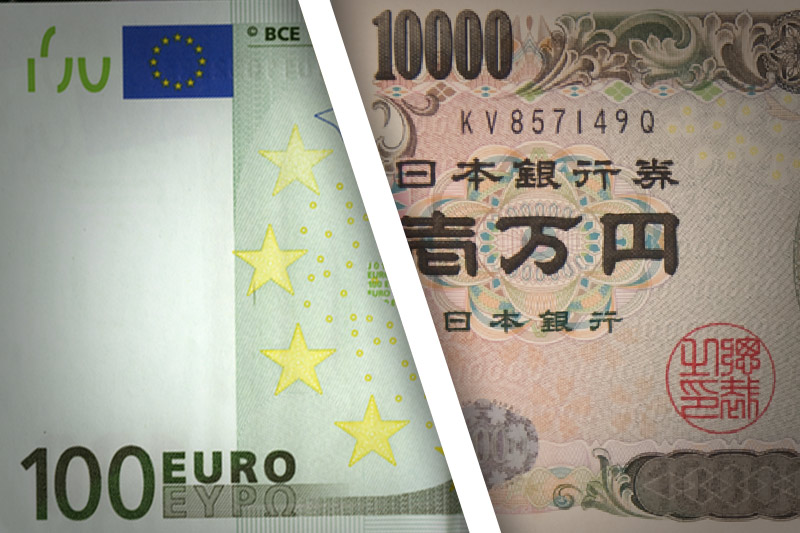Investing.com - The euro strengthened to five-year highs against the yen not on Friday after European Central Bank Governing Council member Jens Weidmann warned against keeping interest rates low.
In U.S. trading on Friday, EUR/JPY was up 0.77% at 144.62, up from a low of 143.44 and off a high of 145.69.
The pair sought to test support at 142.10, Monday's low, and resistance at 146.84, the high from Oct. 3, 2008.
European Central Bank Governing Council member Jens Weidmann said earlier that keeping interest rates low may endanger political reforms.
According to Germany’s Bild newspaper, Weidmann said low inflation shouldn’t be used to justify loose monetary policy.
"We must take care to raise interest rates again in a timely manner should inflation pressures build," he reportedly said, and his comments sent the euro posting strong gains against most major currencies, the yen especially.
Meanwhile in Japan, hit-or-miss data weakened the yen against the single currency.
Official data earlier showed that household spending in Japan fell 0.2% in November compared to a year earlier and after a 0.9% rise in October. Analysts had expected household spending to increase by 1.7% last month.
A separate report showed that Tokyo's core consumer price inflation, which excludes fresh food, rose at an annualized rate of 0.7% in December, in line with expectations, after a 0.6% rise the previous month.
Preliminary government data also showed that industrial production in Japan ticked up 0.1% last month, confounding expectations for a 0.4% increase after rising 1% in October.
In addition, data showed that Japan's retail sales rose 4% in November on year, above expectations for a 2.9% gain. October's retail sales rose 2.3%.
The euro, meanwhile, was up against the pound and up against the U.S. dollar, with EUR/GBP trading up 0.03% at 0.8346 and EUR/USD trading up 0.53% at 1.3763.
In U.S. trading on Friday, EUR/JPY was up 0.77% at 144.62, up from a low of 143.44 and off a high of 145.69.
The pair sought to test support at 142.10, Monday's low, and resistance at 146.84, the high from Oct. 3, 2008.
European Central Bank Governing Council member Jens Weidmann said earlier that keeping interest rates low may endanger political reforms.
According to Germany’s Bild newspaper, Weidmann said low inflation shouldn’t be used to justify loose monetary policy.
"We must take care to raise interest rates again in a timely manner should inflation pressures build," he reportedly said, and his comments sent the euro posting strong gains against most major currencies, the yen especially.
Meanwhile in Japan, hit-or-miss data weakened the yen against the single currency.
Official data earlier showed that household spending in Japan fell 0.2% in November compared to a year earlier and after a 0.9% rise in October. Analysts had expected household spending to increase by 1.7% last month.
A separate report showed that Tokyo's core consumer price inflation, which excludes fresh food, rose at an annualized rate of 0.7% in December, in line with expectations, after a 0.6% rise the previous month.
Preliminary government data also showed that industrial production in Japan ticked up 0.1% last month, confounding expectations for a 0.4% increase after rising 1% in October.
In addition, data showed that Japan's retail sales rose 4% in November on year, above expectations for a 2.9% gain. October's retail sales rose 2.3%.
The euro, meanwhile, was up against the pound and up against the U.S. dollar, with EUR/GBP trading up 0.03% at 0.8346 and EUR/USD trading up 0.53% at 1.3763.
